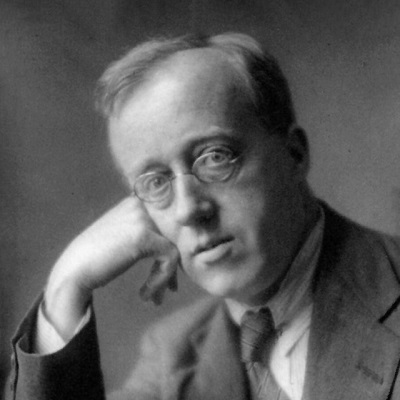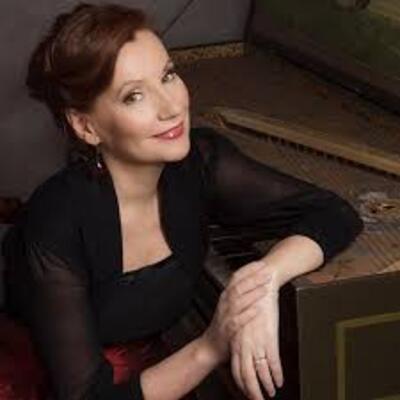Gustavus Theodore von Holst- Biography
Page Contents
“Never compose anything unless not composing it becomes a definite nuisance to you,” Gustav Holst said, exemplifying the depth and passion with which he pursued the heights of music creation. A renowned composer, who is acknowledged today as the composer of ‘The Planets’, Gustav Holst exercised a tremendous influence on the rock music of the mid 20th century. He was one of the few men who were dubbed “post romantics.” He and his friend Vaughan Williams shared a mutual interest in English folk songs, and he contributed to the expansion of English symphonic music beyond the borders of England.
Holst excelled in all areas in which he was involved; he was not only a great composer but also a wonderful teacher who passed on his musical heritage to future generations. Unlike his predecessors, his music was influenced by the East, making it unique and different. His talents ranged from operas to chamber music, vocal and orchestral music, Sanskrit literature, astrology, and more, thanks to his creative and inquisitive mind. It’s no surprise that Holst holds a unique place in the history of twentieth-century music.
Gustavus Theodore von Holst- Birth, Age, Ethnicity, Siblings
Gustav Holst was born on September 21, 1874, as the first of two children to Adolph and Clara Von Holst in Cheltenham, Gloucestershire, England. Adolph’s father, Adolph, was a well-known pianist who taught and spent much of his time practicing the piano, much to the chagrin of his wife, Clara, and their two children. Adolph’s Swedish ancestor worked as a court composer in Russia until he fell out of favor and was deported to Germany. The family soon moved to England. His mother was of Spanish descent, while her great grandmother married an Irishman and moved to Ireland.
Clara died when Gustav was only eight years old, shortly after the birth of Gustav’s brother, Emil Gottfried (who became famous as Ernest Cossart, a film actor in Hollywood). Nina, Adolph’s sister, looked after the children. Gustav’s father, however, married Mary Thorley Stone in 1885 after his wife died. The couple had two children, Matthias Ralph and Evelyn Thorley.
Gustav was a physically challenged child. He had bad eyesight and a weak chest. His father, on the other hand, largely ignored his bodily pain. He also had neuritis in his arm, which he suffered from his entire life. He was given a piano and a violin as a child and began writing at the age of twelve. His father also encouraged him to take trombone lessons in the hopes that it would help his asthma. Gustav attended Cheltenham Grammar School for Boys for his education. He began composing in high school, writing piano pieces, songs, organ voluntaries, anthems, and symphonies. He was also a choirmaster and organist at Wyck Rissington in the Cotswolds.
Education Details
He received a scholarship to the Royal College of Music, where he studied composition with Charles Villiers Stanford. It was here, in 1895, that he met fellow student Ralph Vaughan Williams, who became his lifelong buddy. Despite the fact that their tastes in music were somewhat diverse, they maintained a solid friendship, both emotionally and professionally. Vaughan lauded Holst’s work unreservedly, and the two men developed a mutual interest in researching and preserving the English vocal and choral tradition, particularly folk song, madrigals, and church music. They also began constructive criticism of each other’s work while writing and never lost their mutual trust.
Holst was strongly affected by Wagner’s music while studying at the Royal College of Music, which he heard frequently at Cover Garden. William Morris also affected him, and he joined the Hammersmith Socialist Choir. He was also invited to teach Madrigals by Thomas Morley, choruses by Purcell, excerpts from Wagner, and pieces by Mozart and himself to the Hammersmith Socialist Choir. There, he fell in love with Isobel Harrison, the youngest soprano. By 1897, he had completed his first composition as a student, ‘Winter Idyll,’ which showed the influence of Wagner, Mendelsohn, and Grieg. He was already playing trombone in theatrical orchestras and organ in churches in London at the time.
The following year, he was offered a position as the first trombone with Carl Rosa Opera Company, which forced him to leave the Royal College of Music. In the year 1895, he became interested in Sanskrit literature and Hindu philosophy. He wished to set some Rig Vedic chants to music. Because the English translations were useless, he opted to learn Sanskrit, which opened up a whole new universe for him. Holst enrolled as a ‘non-matriculated’ student at University College London (UCL) to study Sanskrit. From 1899 through 1906, he worked on the opera ‘Sita,’ based on the epic Ramayana. Despite the fact that the composition was never performed during his lifetime, it influenced his musical style to become more direct.
In 1900, Holst composed an elegy, ‘Cotswold Symphony,’ in remembrance of William Morris, as well as his first published composition, ‘Ave Maria.’ In 1903, he also wrote ‘Indra,’ a symphonic poem that depicts the vivid portrayal of the god Indra and his battle with the drought. His other Sanskrit works include ‘Sâvitri’ (1908), a chamber opera based on a Mahabharata story; four groups of Rig Vedic hymns (1908–14); and two texts originally by Indian poet Kalidasa – Two Eastern Pictures (1909–10) and The Cloud Messenger (1909–10). (1913). He married Isobel in 1901.
Gustavus Theodore von Holst- Professional Career
Gustav began to concentrate more on composing after inheriting some money from his father after he died. However, the majority of his songs were rejected by the publisher, and his wife was forced to sew garments for her friends in order to make ends meet. At this time, he accepted his first teaching position as a music master at James Allen’s Girls School in Wets Dulwich, South London. He was appointed Director of Music at St. Paul’s Girls School in Hammersmith, London, in 1905. Gustav was appointed Director of Music at Morley College in 1907, one of two teaching positions he held until his death.
Holst and his friend Vaughan Williams shared an interest in old English folk tunes, madrigal singers, and Tudor composers in the twentieth century. In 1908, he traveled to Algeria on doctor’s orders for asthma treatment, as well as to recover from a depression brought on by his failure to win the Ricordi Prize, a popular composition award. Following an unfavorable reception to his choral composition ‘The Cloud Messenger’ in 1912, he traveled to Spain with fellow composers Balfour Gardiner and Clifford, and Arnold Bax. Stravinsky’s ‘The Rite of Spring’ caused riots in Paris and scathing criticism in London in 1913.
Gustav heard Schoenberg’s ‘Five Pieces for Orchestra’ the next year. Gustav’s work on ‘The Planets’ was influenced by these two pieces. At the time, Holst’s compositions for ‘wind band’ set the standard in the repertoire. At the time, his most well-known pieces were ‘First Suite in E-flat for Military Band’ (1909) and ‘Second Suite in F for Military Band’ (1910). (1911). In 1928, he also composed the ‘Moorside Suite’ for the brass band. Following this, Holst began work on his most famous composition, ‘The Planets.’
During World War I, Holst attempted to enlist but was turned down owing to his poor eyesight and deteriorating lungs. In response to anti-German feelings, he omitted the ‘von’ from his name in 1916. His music, however, benefited from the expanding popularity of English music. Holst was offered a position as music director in the YMCA’s educational work project near the end of the war. ‘The Planets’ was being performed in London at the time. Gustav also taught music to army bands when visiting Salonica (modern-day Thessaloniki, Greece) and Constantinople (now Istanbul) in 1918. After his return, Holst wrote ‘Ode to Death,’ based on a poem by Walt Whitman.
Due to the success of ‘The Planets’ and ‘The Hymn of Jesus,’ his popularity skyrocketed between 1920 and 1923. (1917). He was regarded as one of the most well-known English composers of his day. With a rigorous schedule of conducting, teaching, and lecturing, his already poor health deteriorated until he collapsed in 1923. This prompted him to resign from all sorts of teaching (save at St. Paul’s School) in order to dedicate the remainder of his time to composing.
Later in Life
Holst’s retirement culminated in the composition of ‘First Choral Symphony,’ to verses by Keats. A short Shakespearian opera, ‘At the Boar’s Head,’ followed swiftly, though neither had the immediate widespread appeal of 1928’s ‘A Moorside Suite for Brass Band.’ Holst also made his work known through sound recordings and BBC radio broadcasts. In 1922, he conducted the London Symphony Orchestra for the Columbia business using an acoustic technique. He was commissioned by the New York Symphony Orchestra to produce a symphony in 1927, but instead composed an orchestra based on Thomas Hardy’s ‘Wessex.’ ‘Egdon Heath’ was a strictly reviewed piece that was performed a month after Hardy’s death. Holst considered it to be his best piece.
Toward the end of his life, he was commissioned by the BBC to write a piece for a military band. The result was ‘Hammersmith,’ a musical ode to the London borough where he spent the majority of his life. Holst, who was always interested in becoming a part of new mediums, produced a score for ‘The Bells,’ yet the film suffered from poor promotion and no copy of the film has been found. Gustav also composed a ‘Jazz band composition,’ which his daughter orchestrated. In 1932, he reached a late apex in his academic career when Harvard University awarded him a six-month lectureship. One of his final compositions, ‘Brook Green Suite,’ was performed a few months before his death. It was named after the property on which St Paul’s Girls’ School was built.
Death
Holst died on May 25, 1934, in London, of complications from stomach surgery. His ashes were interred in Chichester Cathedral in West Sussex, with Bishop George Bell delivering a memorial sermon.
- The Revoke (1895)
- The Idea (1896)
- ‘Cotswold Symphony’ (1900)
- ‘Ave Maria (1900)
- Youth’s Choice (1902)
- Indra (1903)
- Sita (1899–1906)
- A Somerset Rhapsody (1906-07)
- Sâvitri (1908)
- A Song of London (1909)
- Philip the King (1910)
- St Paul’s Suite (1913)
- The Planets (1916)
- The Hymn of Jesus (1917)
- The Moth and the Flame (1921)
- Perfect Fool (1918–1922)
- A Fugal Overture, Op 40, No 1 (1922)
- Golden Goose (1926)
- The Morning of the Year (1926–1927)
- Egdon Heath (1927)
- The Song of Solomon (1933–1934)
Also Read, Concetta Monti, Chani Natasha, and Peachprc.




